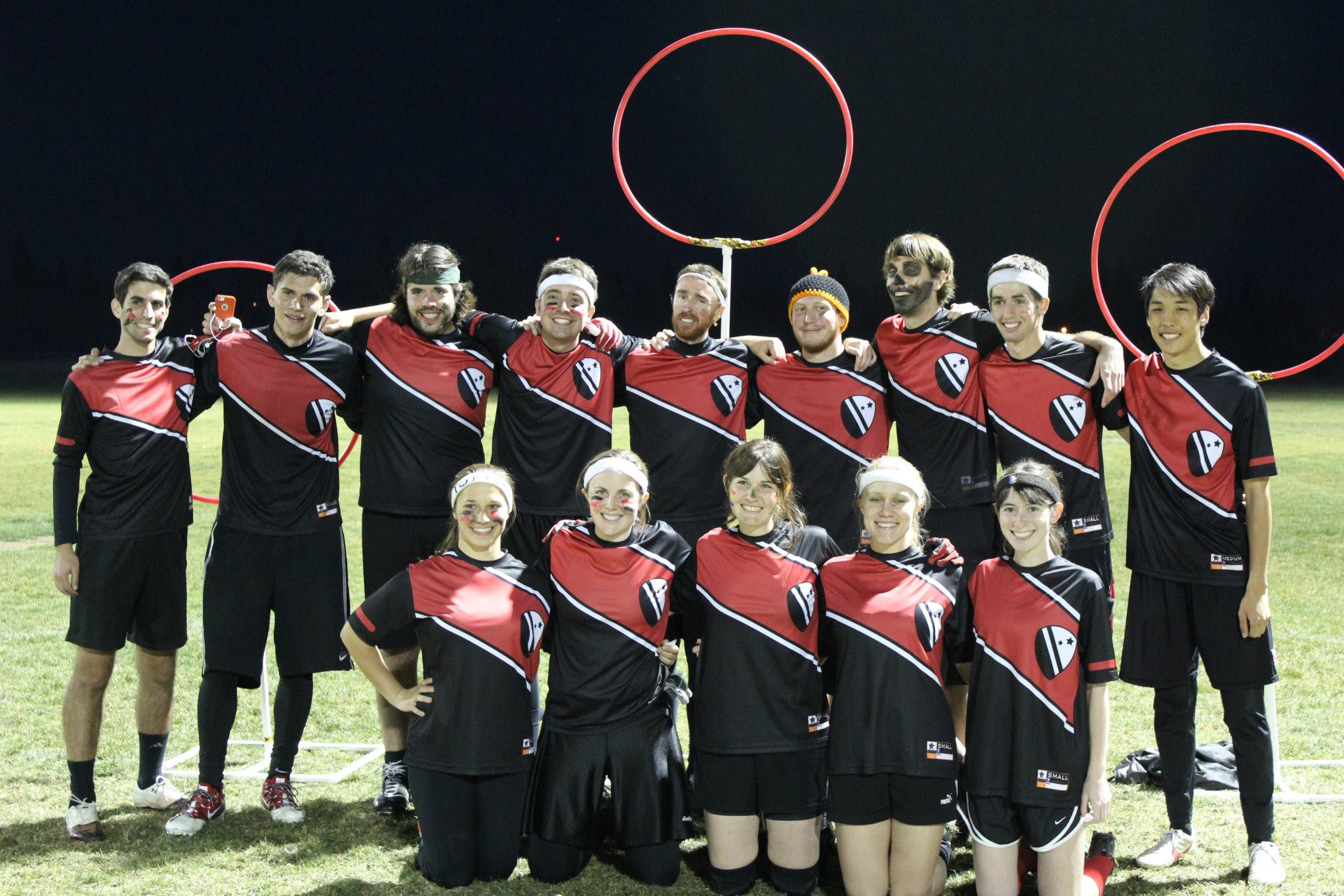- Rule, Britannia, no more?
- Unpopular Opinions: US Quadball Cup 2023
- Proven Contenders: University of Virginia
- Proven Contenders: Rutgers University
- Proven Contenders: University of Michigan
- Proven Contenders: Creighton University
- Different Perspectives: A Look Inside USA Ultimate
- Antwerp QC, Much of Belgian Core, Leaves Competitive Quidditch
Countdown to Kissimmee: Lost Boys Quidditch Club
- Updated: February 25, 2013

The Lost Boys, since their founding, have been the highest profile community team in the IQA. Started by alumni of major quidditch powers like Emerson and UCLA, the Lost Boys have thrived off of pulling graduating players already well-versed in quidditch skill and strategy and folding them into their team. Over time, this plan has proven tremendously effective, allowing them to build a core of dedicated, veteran players. The fruits of this plan showed up in the recent Western Regionals, as they rode a strong performance all the way to the finals, surviving overtime in the semifinals to give UCLA a tough fight in the finals, ultimately losing, 130*-60. Will the team with the most quidditch experience in the IQA be able to continue to impress on a national stage? Let’s take a look:
Best Wins: vs. Silicon Valley Skrewts (100^-60*, Feb. 17), vs. ASU (60*-50, Feb. 17)
Worst Loss: vs. Silicon Valley Skrewts (70*-50, Jan. 19)
Key Players: One of the most important pickups for the Lost Boys this summer was former Hofstra chaser and seeker, Steve DiCarlo. As a chaser, Steve has become one of the top scorers for the Lost Boys, combining an accurate shot with some of the most intelligent spacing you’ll see around the league. Steve has also become “Mr. Clutch” for the Lost Boys, frequently sinking long shots that the Lost Boys absolutely have to have to pull out or stay in a game. He extends this quality as a seeker, where his ability to rise to the moment has led to a snitch pull almost every time he’s been seeker, including the winning snitches in their quarterfinal and semifinal wins at the Western Cup.
Chris Seto came over after playing chaser and keeper for Emerson, but after anchoring the West’s defense in the WxSW Interregional Showcase as a beater, he’s made the transition and never pulled back. Chris uses his elite speed to make his presence felt all over the field, which he combines with a strong arm and smart positioning to be a force for the team, both offensively and defensively.
Player to Watch: The Lost Boys have been utterly transformed by the arrival of ex-Hollywood Harpies keeper Tony Rodriguez, who, though young, has taken his place at the center of this team’s offense and defense. On defense, Rodriguez combines great height and length with phenomenal speed and agility, which can make passing over him or shooting through him nearly impossible. This can play havoc with teams who rely on that kind of movement to provide their points. Offensively, Tony is a tank. He combines elite athleticism with arguably the best spin move in quidditch, which can make him an absolute terror to tackle. When he is able to pull the whole defense to help, his passing is good enough — although not yet elite — to be able to kick out to open teammates for easy goals.
Strategy: The overall versatility of all of their players allows the Lost Boys to play a variety of different strategies, which they’ll frequently change up depending on their opponent. When they’re at their strongest, they’ll usually use a two-male beater line of Chris Seto and Michael Mohlman, giving the line a lot of mobility and some great arm strength, enough to control the entire pitch. They then rely on Rodriguez to make vertical passing difficult for offenses, trusting their stingy coverage and mobile beaters to be able to shut down offenses. On the other end of the field, they like using Rodriguez to draw in defenders, frequently running a beater escort with him to continue his momentum, which gives Rodriguez the freedom to either score goals himself or to look for any of their strong off-ball chasers, including DiCarlo, Amanda Nagy, Liz Fisher, and Andrew Waldschmidt.
Strengths: Their biggest strength is defense, which feeds off of their quick beaters and strong man defense. They’re very good at retrieving bludger control when they lose it, which makes it hard to possess control against them for significant amounts of time. They also have almost a guaranteed initial possession thanks to chaser Ross Lopez, whose relatively large stature hides breakneck speed off the line.
Weaknesses: This team’s overall passing could be much crisper, as the overall lack of chemistry from simply not playing as much together can really show through against teams that have much more precision or play tighter defense. Rodriguez, as a newer player, can sometimes have a tendency to hold onto the ball too often, missing open players from his team.
Prediction: This team currently wears the mantle of best community team in the world. Assuming they can get their whole squad to the cup, they should easily make the bracket on sheer talent. I could see them going as far as an Elite Eight run, with a Sweet 16 finish more likely.
